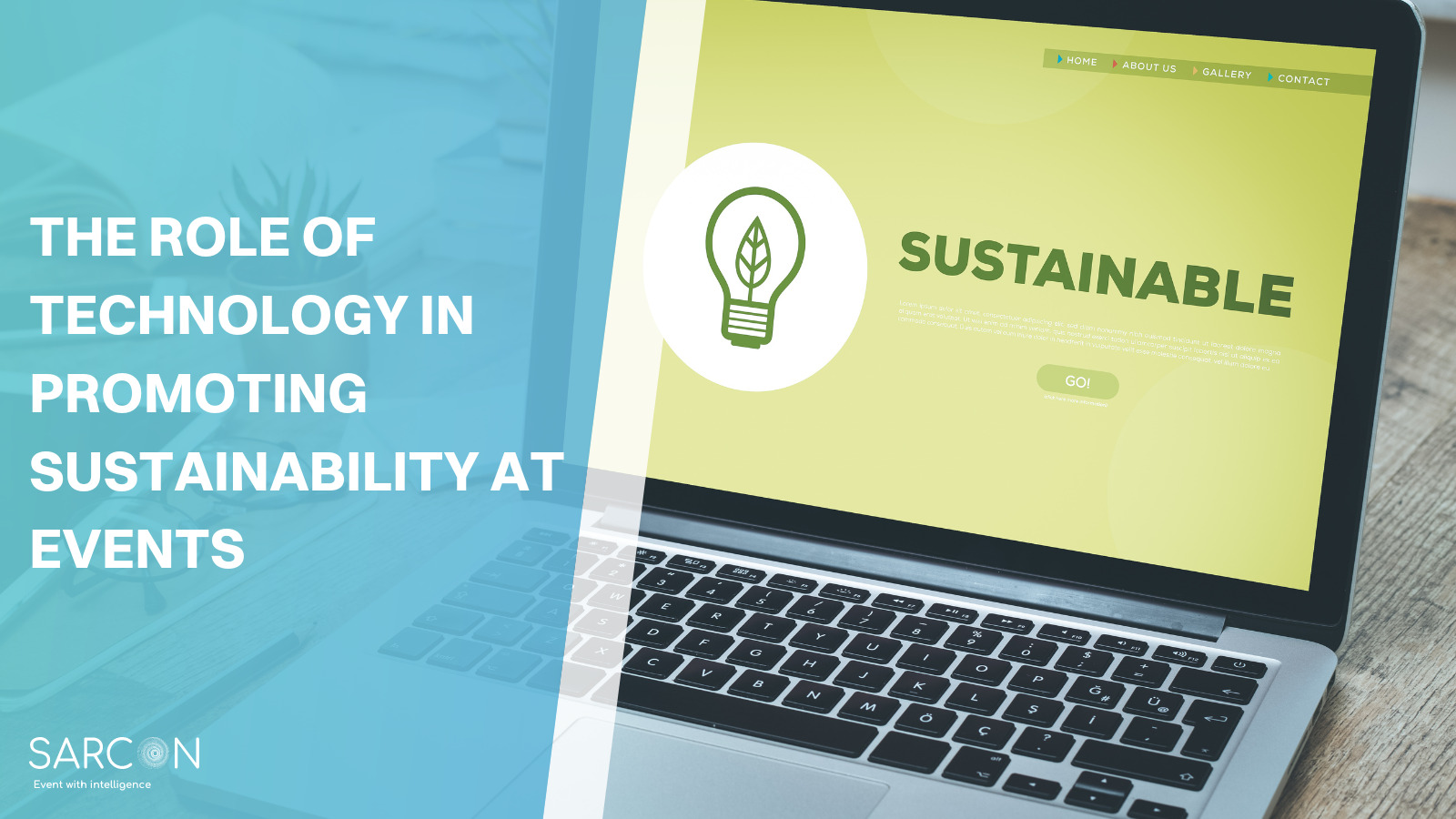Sustainability has become an essential focus for businesses and individuals worldwide. As the need for environmental responsibility grows, the events industry is also taking strides towards greener practices. Technological advancements are key players in this shift, revolutionizing the way events are planned and executed. In this comprehensive article, we will explore the multifaceted role of technology in promoting sustainability at events, highlighting its impact on waste reduction, energy efficiency, attendee engagement, and more.
The Role of Technology in Promoting Sustainability at Events
One of the foremost ways technology contributes to sustainable events is through reducing paper usage. In the not-so-distant past, events were synonymous with mountains of printed materials—brochures, agendas, maps, and promotional materials. However, thanks to mobile apps and electronic badges, participants can now access all relevant information on their smartphones, reducing paper waste significantly.These apps not only streamline event logistics but also foster engagement and networking.
Here are some other ways that technology is promoting sustainability at events :
-
Smart Venue Selection and Design
Technology allows event organizers to choose venues strategically, focusing on sustainability attributes like energy efficiency, green certifications, and proximity to public transportation. Utilizing Geographic Information Systems (GIS), they can analyze data to identify the most eco-friendly locations, reducing the event’s overall carbon footprint.
-
Renewable Energy Integration
Events often consume substantial energy, contributing to greenhouse gas emissions. By integrating renewable energy sources like solar panels and wind turbines, organizers can power events sustainably. Smart grids and energy management systems ensure efficient energy usage throughout the event, minimizing waste and maximizing eco-friendliness.
-
Waste Reduction and Management
Technology provides innovative solutions for waste reduction, diverting materials from landfills. RFID-enabled waste sorting systems, smart recycling bins, and composting initiatives streamline waste management at events. Additionally, digital event materials, such as e-tickets and mobile apps, eliminate paper waste and promote a paperless event experience.
-
IoT and Smart Sensors
The Internet of Things (IoT) and smart sensors revolutionize event management by optimizing resource consumption. These devices monitor real-time data on attendee footfall, temperature, and lighting, enabling event organizers to make data-driven decisions that promote energy efficiency and reduce resource wastage.
-
Green Transportation Solutions
Transportation to and from events can significantly impact the environment. Embracing technology-driven solutions like ridesharing apps, electric vehicle charging stations, and bike-sharing programs encourages attendees to opt for greener transportation methods, reducing emissions and traffic congestion.
-
Virtual and Hybrid Events
Incorporating virtual and hybrid event options expands accessibility while minimizing the ecological impact. Technology enables seamless live streaming, virtual booths, and online networking, attracting a global audience while reducing the carbon footprint associated with physical attendance.
-
Sustainable Event Catering
Technology aids in sustainable event catering by optimizing food production, minimizing food waste, and supporting local and organic sourcing. Advanced data analytics help predict attendee preferences, ensuring that only the required food quantities are prepared, reducing excess and leftovers.
-
Eco-Friendly Event Materials
From biodegradable name badges to compostable servingware, technology has enabled the production of eco-friendly event materials. Event organizers can make responsible choices when selecting materials that align with their sustainability goals.
For more info read : 6 ways to infuse sustainability into your event marketing
-
Augmented Reality for Enhanced Engagement
Augmented Reality (AR) enhances attendee engagement by offering interactive and educational experiences. AR-driven sustainability tours, virtual eco-challenges, and gamification inspire event-goers to adopt greener practices in their daily lives.
-
AI-Driven Energy Management
Artificial Intelligence (AI) optimizes energy consumption by analyzing patterns and recommending energy-saving strategies. AI-driven energy management systems ensure that lighting, heating, and cooling are tailored to meet the needs of attendees while minimizing wasteful energy usage.
-
Water Conservation Technologies
Water scarcity is a global concern, and events can consume substantial amounts of water. Technology-driven water conservation solutions, such as smart faucets, rainwater harvesting, and water-efficient fixtures, help reduce water consumption without compromising attendee comfort.
-
Data-Driven Sustainability Metrics
Tracking and measuring sustainability efforts are essential for event organizers to gauge their impact. Technology allows for real-time data collection, analysis, and reporting of sustainability metrics, empowering event planners to set and achieve ambitious eco-friendly goals.
-
Green Accommodation Solutions
Collaboration with sustainable accommodations ensures that event attendees have access to eco-friendly lodging options. Technology platforms facilitate the identification and booking of environmentally responsible hotels and accommodations.
-
Renewable Energy Experiences
Integrating renewable energy experiences within events showcases the potential of sustainable technologies. Solar-powered charging stations, kinetic dance floors, and wind-powered attractions serve both educational and entertainment purposes, inspiring attendees to support renewable energy initiatives.
-
Sustainable Transportation Displays
Highlighting sustainable transportation options, such as electric vehicles and bikes, at events encourages attendees to embrace green transportation solutions. Technology-driven displays and demos create engaging experiences that promote eco-friendly mobility.
-
Remote Collaboration Tools
Facilitating remote collaboration through Cloud-based collaboration platforms reduces the need for extensive travel. Virtual meetings, webinars, and remote workspaces foster a global community without sacrificing the need for valuable networking and knowledge-sharing.
-
Blockchain for Transparent Supply Chains
Blockchain technology ensures transparency in supply chains, verifying the origins of products and materials used at events. This fosters trust among attendees, knowing they are participating in an event with a commitment to ethical and sustainable sourcing.
-
Eco-Friendly Event Merchandise
Promotional merchandise plays a significant role in events. Utilizing sustainable materials for event swag, coupled with digital marketing initiatives, minimizes waste and reduces the environmental impact of marketing efforts.
-
Interactive Sustainability Workshops
Engaging workshops on sustainable practices, powered by technology, empower event attendees with actionable knowledge. Hands-on sessions, incorporating AR/VR elements, educate participants on eco-conscious lifestyle choices.
-
AI-Driven Waste Sorting
AI-powered waste sorting robots accurately segregate recyclable materials from general waste. Deploying these robots at events ensures effective waste management and enhances recycling efforts.
-
Tech-Enabled Green Exhibitions
Incorporating green exhibitions featuring eco-friendly products and services inspires attendees to adopt sustainable choices. Interactive displays and demonstrations highlight innovative green technologies and solutions.
-
Carbon Offset Solutions
Event organizers can utilize technology platforms to facilitate carbon offsetting initiatives. Attendees can contribute to sustainability efforts by investing in projects that counteract the event’s carbon emissions.
For more info read : 8 Tips to Reduce Your Event’s Carbon Footprint in 2023
-
Sustainable Event Certifications
Technology streamlines the process of obtaining sustainable event certifications. Utilizing software and platforms that track and verify eco-friendly practices, event organizers can earn official recognition for their sustainability efforts.
-
Recycling Reward Systems
Implementing recycling reward systems through technology encourages attendees to actively participate in recycling initiatives. Collecting recyclables in exchange for incentives fosters a culture of environmental responsibility.
-
Post-Event Impact Assessment
After the event concludes, technology aids in conducting post-event impact assessments. Analyzing data on energy consumption, waste generation, and attendee feedback helps identify areas for improvement and guides future sustainability strategies.
Conclusion
As the world collectively seeks sustainable solutions, the role of technology in promoting eco-consciousness at events is a testament to human ingenuity. From smart waste management and paperless initiatives to renewable energy sources and virtual participation, technology is empowering event organizers to set new standards of environmental responsibility. By embracing these innovative practices, events are not only leaving a positive impact on the planet but also inspiring attendees to adopt eco-friendly habits in their everyday lives. In this era of digital connectivity, the amalgamation of technology and sustainability is paving the way for a greener and brighter future for events worldwide.
FAQs
Q: How does technology contribute to reducing waste at events?
A: Technology offers various solutions like RFID-enabled waste sorting systems and digital event materials to reduce waste at events significantly. Smart recycling bins and composting initiatives further streamline waste management.
Q: What are virtual and hybrid events, and how do they promote sustainability?
A: Virtual events allow attendees to participate remotely, reducing the need for extensive travel. Hybrid events combine physical and virtual elements, attracting a global audience while minimizing the ecological impact of physical attendance.
Q: How can technology enhance attendee engagement at sustainable events?
A: Augmented Reality (AR) provides interactive and educational experiences, like sustainability tours and virtual eco-challenges, fostering attendee engagement and inspiring green practices.
Q: What role does AI play in energy management during events?
A: Artificial Intelligence (AI) optimizes energy consumption by analyzing data patterns and recommending energy-saving strategies, ensuring efficient use of resources and reducing waste.
Q: How can technology promote sustainable transportation at events?
A: Technology-driven solutions like ridesharing apps, electric vehicle charging stations, and bike-sharing programs encourage attendees to choose eco-friendly transportation options, reducing emissions and congestion.
Q: How do blockchain and sustainable events go hand in hand?
A: Blockchain ensures transparency in supply chains, verifying ethical and sustainable sourcing of event materials, fostering trust and credibility among attendees.



